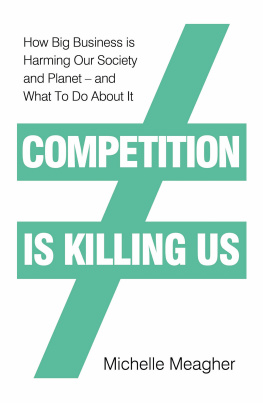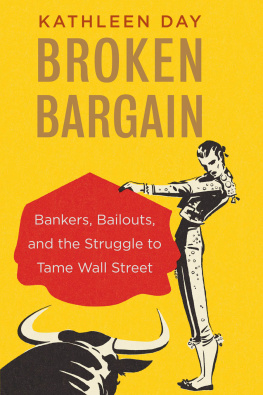The bargain sector
African Studies Centre
Research Series
17/2001
The bargain sector
Economic restructuring and the non-farm sector in the Nigerian savanna
Kate Meagher
First published 2001 by Ashgate Publishing
Reissued 2018 by Routledge
2 Park Square, Milton Park, Abingdon, Oxon OX14 4RN
711 Third Avenue, New York, NY 10017, USA
Routledge is an imprint of the Taylor & Francis Group, an informa business
Copyright African Studies Centre, Leiden, 2001
All rights reserved. No part of this book may be reprinted or reproduced or utilised in any form or by any electronic, mechanical, or other means, now known or hereafter invented, including photocopying and recording, or in any information storage or retrieval system, without permission in writing from the publishers.
Notice:
Product or corporate names may be trademarks or registered trademarks, and are used only for identification and explanation without intent to infringe.
Publishers Note
The publisher has gone to great lengths to ensure the quality of this reprint but points out that some imperfections in the original copies may be apparent.
Disclaimer
The publisher has made every effort to trace copyright holders and welcomes correspondence from those they have been unable to contact.
A Library of Congress record exists under LC control number: 2002421569
Photographs: Adamu Buba
Cover photo: Fulani women selling millet balls and sour milk (fura da nono)
ISBN 13: 978-0-415-79306-3 (hbk)
ISBN 13: 978-1-315-20995-1 (ebk)
Contents
This study has been a true learning experience. Almost nothing went according to plan. But, as with all good learning experiences, the struggle has proven fruitful. It has provided an opportunity for unforseen rural realities to intrude themselves into my theoretical framework, with disorganizing, but edifying consequences. It has also provided an opportunity for me to experience the kindness and patience of the many people whose support made this study possible, with all its hitches. First and foremost, I would like to thank Deborah Bryceson of the Africa Studies Centre, Leiden, whose intellectual leadership and tireless fund-raising have helped to refocus empirical attention on the restructuring of African rural economies, and whose patience has seen so many of us through the long task of working through our findings. I would also like to acknowledge the generous assistance of the Dutch Ministry of Foreign Affairs, who funded the project. I owe more than gratitude to my tireless research assistant, Ibrahim Mohammed. His commitment to the orderly conduct of the fieldwork was both heartening and indispensable. Thanks are equally due to Rufai Mohammed, Lauratu Usman, Hauwa Abubakar, and Raikiya, not only for their efforts in the field, but for the comraderie they brought to the experience. For expert assistance with data entry and analysis, I am indebted to Danladi Jarma and Mr. Razak of the Institute for Agricultural Research, Ahmadu Bello University, Zaria.
The work would have been both slower and less thorough without the ready assistance of our many facilitators in Nasarawan Doya Alh. Dauda, Prince Abdullahi, and a range of others and we benefited greatly from the gracious cooperation of the late Sarki of Nasarawan Doya, who, sadly, passed away some months after the conclusion of the fieldwork. Last, but not least, I owe the substance of what I have learned to the people of Nasarawan Doya, who put up so calmly and hospitably with our comings and goings, our long interviews, our endless rounds of questions intrusions to which they have yielded so many times over the years, with little result. I thank them for their faith that, one day, something good may come of it.
Im happy that the African Studies Centre, Leiden, decided to publish this manuscript in their Research Series. In particular, I want to thank Dick Foeken for his support and Mieke Zwart who did the layout.
Nigerias large urban population and oil wealth have tended to deflect attention from its rural areas. Relative to many other Sub-Saharan African countries, rural non-farm activities are relatively under-researched in Nigeria. Kate Meaghers study of the savanna village of Nasarawan Doya is an important and timely contribution to this field. Her work indicates that the Nigerian peasantry have benefited comparatively little from the nations oil wealth. The implementation of structural adjustment and economic liberalization policies, on the other hand, have had far-reaching consequences. Rural households have been differentially affected with many facing severe productive and welfare constraints.
This study builds on research findings emanating from the De-agrarianization and Rural Employment (DARE) research programme coordinated by the African Studies Centre, Leiden, and financed by the Netherlands Ministry of Foreign Affairs. The DARE programme involved four core research teams in Ethiopia, Nigeria, Tanzania and South Africa. Kate Meaghers study was linked to the work of her fellow DARE research team members, Abdul Raufu Mustapha, Mohamed-Bello Yunusa, Mohamed Iliya, and Barth Chukwuezi, based at the Centre for Research and Documentation, Kano.
The DARE programmes research programme objectives have been to compare and contrast the process of de-agrarianization in various rural areas of Africa in terms of economic activity reorientation, occupational adjustment, social identification, and spatial relocation of rural dwellers away from strictly peasant modes of livelihood. The extent and nature of non-agricultural activities in rural areas have been examined in relation to the influence of risk on rural household production and exchange. As has been amply demonstrated in the case of Nawarawan Doya, and mirrored in all the other DARE case study findings, de-agrarianization processes in Africa have in fact reaffirmed rather than undermined the importance of the subsistence fallback rural dwellers reliance on own-farm produced staple foodstuffs.
The overall findings from the DARE programme are intended to provide insight into the processes of change which are moulding the livelihood prospects of African rural and urban dwellers in the twenty-first century. It is hoped that the knowledge gained may be useful for formulating more effective developmental policies to assist in short-circuiting Sub-Saharan Africas current economic and political vulnerabilities.
Deborah Fahy Bryceson
DARE Research Programme Coordinator
African Studies Centre, Leiden
The story began with the admission of the failure of industrialisation-led development strategies to generate income entitlements for the poor sufficiently fast and on a wide enough basis. Hopes were pinned on the new bargain sector, the rural non-farm economy. [However] the rural non-farm sector must not be viewed as a panacea for the fundamental problems of rural development and poverty alleviation. The problem of development is a problem of the whole; it cannot be solved by tinkering with a single part. (Saith 1992:113114)
At the end of the dirt road leading into Nasarawan Doya, a Muslim Hausa village in the grain surplus region of the northern Nigerian savanna, there is a clearing that serves as a rendez-vous point for transport down to the main road, a tarred federal highway running between the state capitals of Kano and Kaduna. A red minibus, owned by a man from a village some 50km away, is normally parked there, waiting for a sufficient number of passengers to make the journey. At strategic times of day, a swarm of young men on motorcycles also wait for passengers going to the main road or out to the farms and hamlets along tracks too narrow for vehicles. In the shade of a small storehouse at the centre of the clearing, a line of young girls sell local snacks prepared by women from the village, the majority of whom pursue a range of non-agricultural activities from within the confines of the household, owing to the strict observation of the Islamic practice of wife seclusion.











